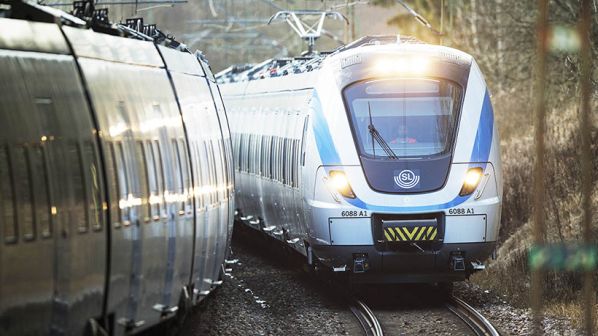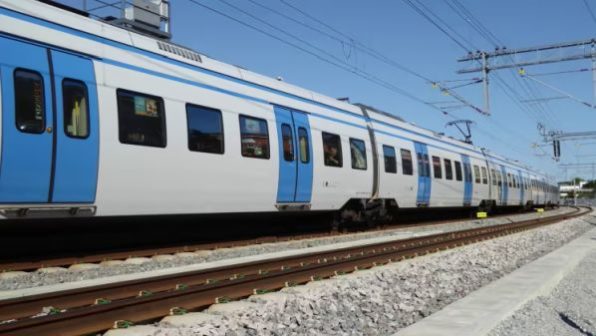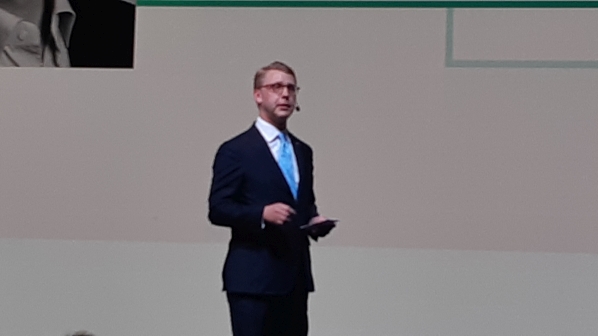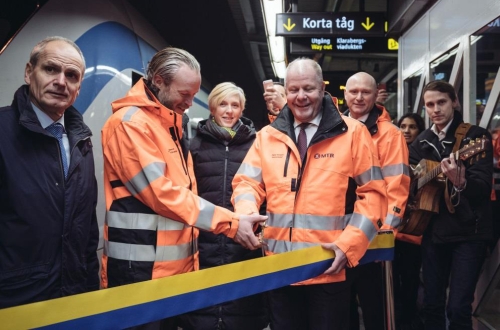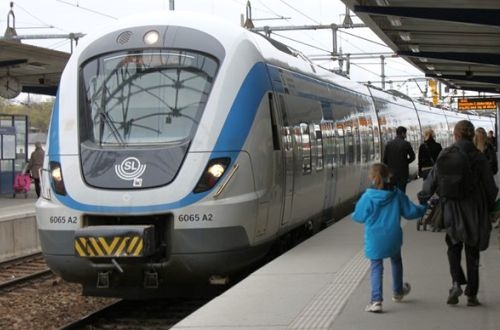GREATER Stockholm Local Transport (SL) has signed an emergency contract with Swedish national operator SJ to operate Pendeltåg commuter services in Stockholm, replacing MTR Nordic, a subsidiary of Hong Kong operator MTR.
MTR Nordic was awarded a 10-year contract in December 2015 to operate the network from December 11 2016, which included an option to extend to 2030. MTR won the contract, which includes train operation, station management and rolling stock maintenance, against competition from Abellio, Keolis, SJ and Tågkompaniet. Stockholm commuter services have been operated by MTR Pendeltågen, a subsidiary of MTR Nordic.
However, SL announced in May that it would not be exercising the extension option and would launch a tender to find a new operator from 2026. At the time, SL said there had been “serious problems” since autumn 2022, and the current contract meant the operator had difficulty earning sufficient revenue to deliver high-quality services, while rolling stock issues were also being neglected, which affected service reliability.
MTR says that since June, commuter services in the Stockholm region has continued to be subject to serious disruption caused by the ongoing shortage of local drivers and maintenance issues, which contributed to a greatly reduced and unreliable range of services with cancelled, irregular and delayed departures. However, the company was working hard to improve the financial situation of the business, which had been operating at a loss.
In a statement on November 1, SL announced that following discussions with MTR and SJ, it has signed a contract for SJ to take over responsibility for operating the network from MTR from March 3 2024, for a two-year period with two one-year extensions.
MTR said that it has entered into a supplemental agreement with SL regarding the early termination of the contract. As part of the agreement, MTR Pendeltågen will pay SKr 580m ($US 51.6m), comprising an exit fee of SKr 280m in relation to SL’s additional costs connected with the early termination and a payment of SKr 300m to settle other outstanding issues relating to the operation and management of the network. MTR Pendeltågen will also transfer inventory, spares and assets to SJ.
As a result, and also due to the need to provide for wind-down costs, certain assets which will need to be written off and the net costs anticipated to be incurred in meeting MTR Pendeltågen AB’s obligations under the assignment agreement until the termination date, MTR estimates that it will need to recognise a charge of approximately SKr 1bn in its 2023 financial results.
“Close cooperation between SL and SJ is a prerequisite for this to be successful,” says SL CEO, Mr David Lagneholm. “The signing of this agreement marks the start of work to restore stable and reliable commuter train services. It will take time, but conditions are now improving.”
“We have made important investments to develop the commuter train operation in the long term during the years that we have operated the commuter trains,” says MTR Nordic CEO, Ms Caroline Åstrand. “Among other things, we have trained a historically large number of new train drivers in-house. Now all the focus is on ensuring a good handover to the next operator.”
Before her appointment as CEO of MTR Nordic in June, Åstrand was previously CEO of MTR Metro. She replaced Mr Henrik Dahlin, who left MTR Nordic in March after 10 years with the company.
The process of transferring operation from MTR to SJ will begin immediately, with staff offered the chance to transfer to the new operator. MTR remains responsible for commuter rail services until March 2 2024.
SL says it will take time for passenger numbers to recover, but says it hopes that improvements to metrics such as punctuality will begin to improve from this winter.
“This is a major and important decision taken with broad political consensus,” says SL chairman, Mr Anton Fendert. “Public transport should work both for those who travel with it and for those who work in it. I hope that this decision will give us a more reliable commuter train service.”
“It is important that we now have this new agreement in place,” says Mr Jens Sjöström, first vice-chairman of SL. “I have high hopes that SJ together with SL will work long-term to improve the situation on the commuter trains, increase the number of train drivers, create stability and good conditions for the staff. This will enable us to achieve stable and reliable traffic.”
“The commuter train service is an important artery on which many residents in the Stockholm region are dependent,” says SJ CEO, Ms Monica Lingegård. “It is an operation that we know well because we have previously run the commuter train service for many years. Together with infrastructure manager Trafikverket in the Stockholm region, we will do our utmost to deliver a well-functioning and reliable service over time. This work will take time, but we are starting now and are prepared to work hard.”
The Pendeltåg network connects the capital with surrounding towns. It consists of four lines with a total length of 247km serving 54 stations, carrying more than 100 million passengers a year.
